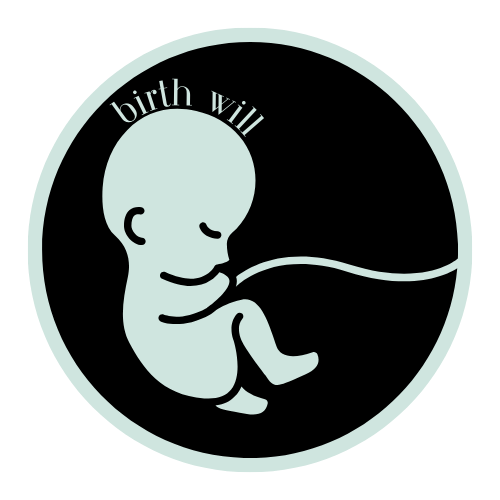Birth Plans = Medical Recognition | Birth Wills = Legal Recognition

If you’re reading this and pregnant, hopefully you already have—or are working on—your birth plan. But if you’re planning to travel while pregnant, I highly advise having a Birth Will as well (assuming you are at peace with the reproductive rights in your state of both residence and delivery).
I know this is a heavy topic. But honestly, I wouldn’t feel like I was fully doing my job as a doula if I didn’t make women aware of all their rights, no matter who they are or where they are—especially in times like these.
Disclaimer: This is a heavier conversation, so please engage with ease. I’ve made it as lighthearted as I know how because my goal is to inform pregnant women without adding unnecessary fear.
Historically, pregnancy came with a big side of risk. Back in the Middle Ages, women didn’t just announce they were expecting — they wrote their wills.
“My dearest cousin, I am with child. Please take my shoes when I die.”
(Somehow, it’s both tragic and weirdly humorous.)
For generations, childbirth could mean a 50/50 chance of survival. By the 1800s, women were still preparing for birth like it might be their final act. And not because they were afraid of pain — but because doctors didn’t know how to care for women after childbirth, and the law certainly wasn’t made with us in mind.
Now it’s 2025. Medicine has advanced in ways those women couldn’t have dreamed of. We have brilliant doctors, NICUs, trauma teams, and care that can preserve life long past what used to be possible.
As women, our connection to the law hasn’t evolved nearly as fast as our connection to modern medicine.

Case in point: Adriana Smith (Click To Read Article) in Georgia. A young, healthy woman who wanted to have her baby. But a medical complication changed everything — and now she’s on life support (at the time of writing this in 05/25). Her story is heartbreaking. And while she had every intention of becoming a mother, the unimaginable happened. If she’d had a Birth Will — just a simple plan outlining her wishes in a worst-case scenario — someone might have been able to speak for her. To advocate for her. To ensure her story still aligned with her values, even if she couldn’t speak for herself anymore.

I know this is heavy — the job of a doula is to make hard things manageable. And as a doula, I don’t take that lightly. But one woman in this situation is one too many. That’s exactly why this conversation matters.
Here’s what I want you to hear: Don’t fear birth because the system is inadequate (from the aspect of technology – communication still seems to be a heavy and prevailing obstacle in some settings – another topic for another day). That was the past. Today, the medical system can carry your story far beyond the point where you’re in the writer’s seat. That’s a gift — but it also means it’s more important than ever to put your wishes in writing. (Birth Plans = Medical Recognition & Birth Wills = Legal Recognition)

Ease your fear of the medical system’s flaws by also respecting and understanding its strengths — especially in areas that may not even be on the average woman’s radar. The situation that happened to the young woman in Georgia is a true one-in-a-million scenario. But my goal is to make sure that every one of those million women is prepared.

Because even if most women will never need to use a Birth Will, every woman deserves to have one in place — just in case. This should be approached as an extension of your birth plan.(Especially for those who are traveling, you don’t get a malaria shot for a trip to the grocery store up the street, but you certainly would for a 20-hour flight to another destination with its own environment bugs, animals’ people, and so on….)
That’s what a Birth Will is for. It’s not a death sentence. It’s not just for “what ifs.” It’s a tool of clarity, peace, and preparation.
A Birth Will outlines what you want to happen if something goes wrong — even before birth, in random situations that can unexpectedly take the ability to write the story your way from you.

And just like a birth plan outlines how you want to labor and deliver — a Birth Will outlines what you want to happen if something goes wrong. It should always include not just you, but anyone who is inside your body. Whether that’s a pregnancy or a complication you didn’t expect, your will should speak for both of you.
This becomes even more important when you consider how drastically laws vary by state in 2025. So before you travel during your pregnancy, please make sure you have both:
- A birth plan for how you want to bring life into the world.
- A birth will to make sure your wishes are known, respected, and protected no matter where you are or what happens.
We’ve come a long way from “Please take my shoes when I die” — but the old way still works. Only now, we use it to protect our stories while we’re still writing them — and use it as a tool to protect the little story in the making.
Interested In A Birth Will Preparation Consultation?
